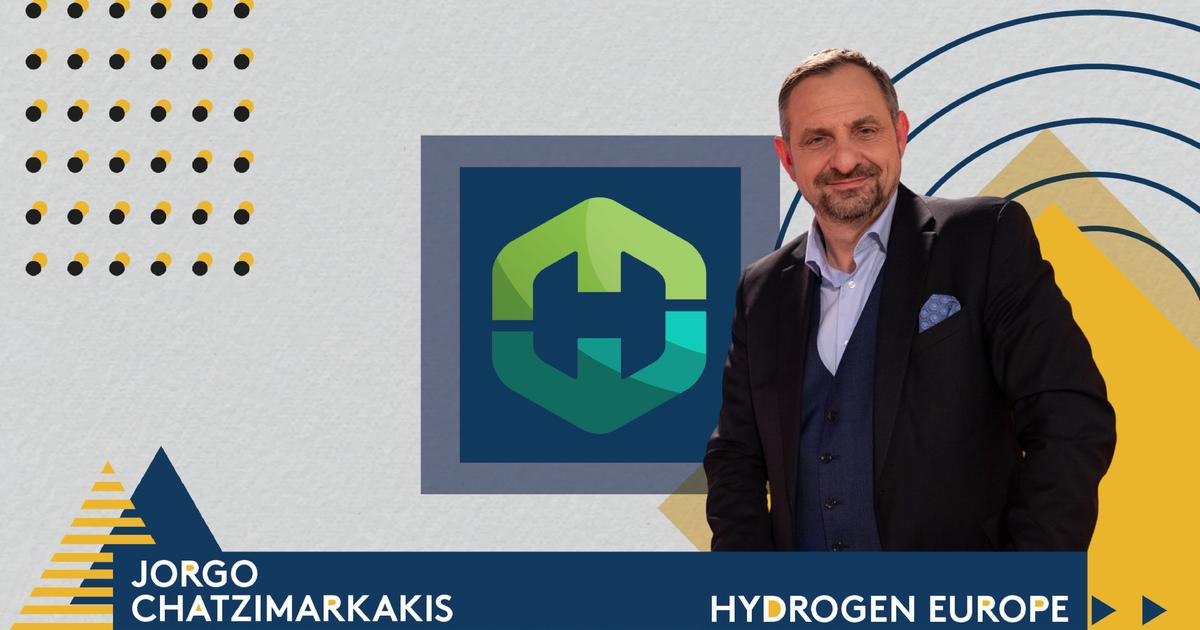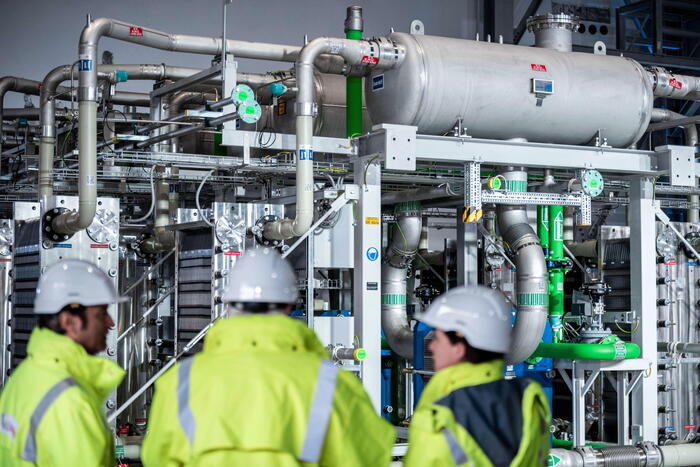Enlarge image
Macron and Scholz in Paris: Hydrogen for Europe
Photo: IMAGO/Andrea Savorani Neri / IMAGO/NurPhoto
France and Germany want to extend the planned hydrogen line called H2Med between Barcelona and Marseille to Germany.
The aim is to facilitate the transport of hydrogen throughout Europe, according to the Franco-German declaration on the 60th anniversary of the Elysée Treaty adopted in Paris on Sunday.
Both countries also want to set up a “high-level working group” on hydrogen at ministry level to develop “strategic decisions” by the end of April.
"We will also ensure that both renewable and low-carbon hydrogen can be taken into account in Europe's decarbonization targets," the statement reads.
Behind this lies the dilemma that the production of hydrogen requires a great deal of energy.
Germany primarily wants to use “green hydrogen” that is produced with renewable energies.
France, on the other hand, relies on so-called “red hydrogen”, which is produced with nuclear energy and emphasizes that it is low in emissions.
On the fringes of the joint Council of Ministers, a Franco-German joint venture between Siemens Energy and Air Liquide was presented, which is involved in the construction of one of the world's largest production sites for hydrogen in Normandy.
For this purpose, electrolysis modules are to be built in Berlin, which are then to be assembled in France.
The goal is a large hydrogen production plant in Port-Jérôme near the English Channel with a capacity of 200 megawatts.
Spain wants to become superpower for green hydrogen
H2Med is designed to connect Spain and Portugal to the rest of Europe and replace the MidCat gas pipeline, which was never completed despite years of planning.
For a long time, Paris in particular showed little interest in connecting the Iberian Peninsula to the rest of Europe in terms of energy.
In recent months, agreement was finally reached on the new pipeline between Barcelona and Marseille.
The German government supported Madrid in the negotiations.
Spain's Prime Minister Pedro Sánchez commented on the announcement that he wanted to extend the pipeline with a muscle emoji on Twitter.
He wrote that it reinforces the pan-European character of the leadership.
Spain aims to become a green hydrogen superpower in the coming years.
The necessary investments are to be put out to tender in the coming months.
The construction of the undersea pipeline between Barcelona and Marseille alone is said to cost 2.5 billion euros.
The Spanish gas network operator Enagá estimates that Spain will have an annual production potential of up to three million tons in 2030.
1.3 million tons of this hydrogen are to be consumed domestically, with the rest being exported to other European countries via H2MED.
That will correspond to about ten percent of the total demand in Europe.
In 2040 Spain wants to produce up to four million tons.
An advantage of Spain is the good climatic and geographical conditions: it is sunny and often windy.
Large parts of the country are deserted and undeveloped;
so there is room for wind turbines and solar panels.
The Spanish Minister for Ecological Change, Teresa Ribera, emphasizes that Spain is "particularly well positioned".
About 20 percent of the green hydrogen projects announced worldwide are based in the country.
slue/dpa/AFP







/cloudfront-eu-central-1.images.arcpublishing.com/prisa/JNKEYSPVIXFSA66UHYKQUNTSQA.jpg)







